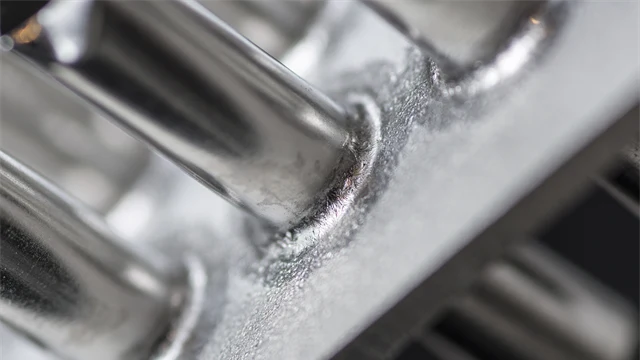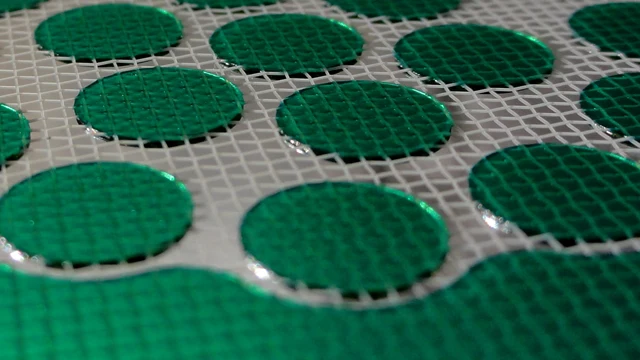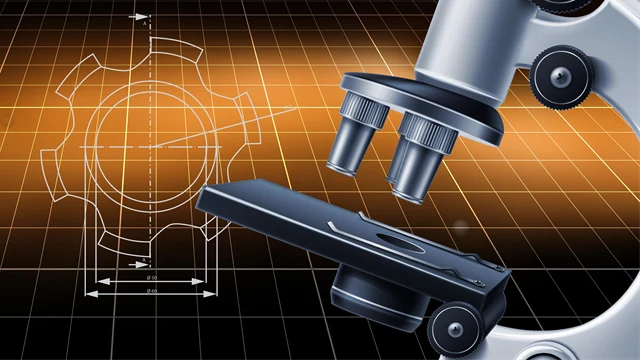
Produtos
Metal de adição para brasagem à base de níquel
A família BrazeLet® BNi oferece pós metálicos de adição à base de BNi, ideais para diferentes aplicações, condições e propriedades de brasagem. As aplicações englobam uma gama diversa de áreas automotivas e industriais. Algumas aplicações típicas são refrigeradores EGR (Exhaust Gas Recirculation, recirculação de gases de escape) para motores a diesel e gasolina, conversores catalíticos e injetores de combustível. Os trocadores de calor com placas, aquecedores e caldeiras tratados por brasagem são algumas das aplicações industriais comuns.
Metais de adição para brasagem à base de níquel BrazeLet®
BrazeLet BNi1
BrazeLet BNi1A
BrazeLet BNi2
A liga de brasagem à base de níquel BrazeLet® BNi2 proporciona alta resistência quando é feita a brasagem de material de aço inoxidável a vácuo ou em atmosfera protetora. A liga de brasagem é tipicamente usada para a brasagem de trocadores de calor, tais como resfrigeradores EGR em aplicações automotivas ou para água encanada de uso doméstico ou industrial, onde não é necessário haver uma alta resistência à corrosão.
O BrazeLet BNi2 contém boro como agente redutor do ponto de fusão e pode, portanto, ser usado em temperaturas relativamente baixas.
Composição
ISO 3677, B-Ni82CrSiBFe-970/1000
ISO 17672, Ni 620
ANSI/AWS A5.8, BNi-2
UNS N99620
Faixa de fusão
970-1000°C
Temperatura mín. de brasagem
1050°C
BrazeLet Ni2DW-9201
BrazeLet Ni2P-9012
BrazeLet Ni2R-8501
BrazeLet BNi3
BrazeLet BNi4
BrazeLet BNi5
O BrazeLet® BNi5 é uma liga de brasagem à base de níquel com um bom comportamento de molhabilidade sobre materiais de aço inoxidável, em situações de brasagem a vácuo ou em atmosfera protetora.
O alto teor de cromo na liga resulta em uma boa resistência à corrosão ácida e em gás quente. A elevada faixa de fusão do BrazeLet BNi5 o torna adequado para aplicações sob temperaturas muito elevadas como, por exemplo, em refrigeradores EGR para caminhões e em conversores catalíticos automotivos de metal.
Composição
ISO 3677, B-Ni71CrSi-1080/1135
ISO 17672, Ni 650
ANSI/AWS A5.8, BNi-5
UNS N99650
Faixa de fusão
1080-1135°C
Temperatura mín. de brasagem
1150°C
BrazeLet Ni5DW-9201
BrazeLet Ni5P-9012
BrazeLet Ni5R-8501
BrazeLet BNi6
BrazeLet BNi7
O BrazeLet® BNi7 é uma liga de brasagem à base de níquel que fornece alta resistência ao realizar a brasagem de material em aço inoxidável a vácuo ou em atmosfera protetora. Aplicações típicas para esta liga de brasagem são trocadores de calor que não exigem alta resistência à corrosão, tais como os refrigeradores EGR automotivos, bem como aplicações de água encanada domésticas ou industriais.
O BrazeLet BNi7 contém fósforo como agente redutor do ponto de fusão e pode, portanto, ser usado em temperaturas relativamente baixas.
Composição
ISO 3677, B-Ni76CrP-890
ISO 17672, Ni 710
ANSI/AWS A5.8, BNi-7
UNS N99710
Temperatura de fusão
890°C
Temperatura mín. de brasagem
980°C
BrazeLet Ni7DW-9201
BrazeLet Ni7R-8501
BrazeLet Ni613D-9004
BrazeLet Ni613D-9302
BrazeLet Ni613DW-9003
BrazeLet Ni613DW-9201
BrazeLet Ni613DW-9205
BrazeLet Ni613P-9011
BrazeLet Ni613P-9012
BrazeLet Ni613R-8501
BrazeLet Ni613R-9003
BrazeLet Ni623
Fale conosco

Vendas e suporte técnico
Política de privacidade
Concordo com o processamento de meus dados pessoais pela Höganäs para que possa contatar-me. Minhas informações de contato também podem ser usadas para fins de marketing, tais como envio de boletins informativos e outras informações relevantes. Os dados não serão compartilhados com terceiros. Juntamente com o meu consentimento, também confirmo que tenho mais de 16 anos.
Para saber mais sobre como processamos informações pessoais, consulte a nossa política de privacidade.


